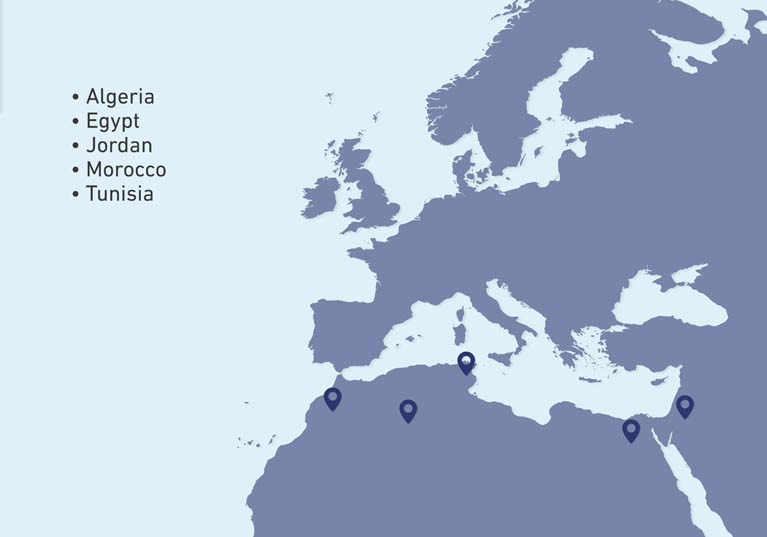
LOGISMED Training Activities
Context and objectives
LOGISMED-Training Activities (LOGISMED-TA) helped improve the qualifications of operators and managers in the logistics sector, boosting transport and logistics in the Mediterranean.
The lack of qualified staff, adequate training programmes and harmonised logistics systems hinders smooth trade flows in the Mediterranean region. LOGISMED-TA reinforced the competitiveness of the region’s transport and logistics sectors by complementing existing training programmes and supporting Mediterranean countries in their efforts to improve the qualifications of personnel in the sector.
LOGISMED-TA was part of the LOGISMED programme promoted by the European Investment Bank (EIB), which aims to create a network of Euro-Mediterranean logistics platforms working under common quality criteria.
The LOGISMED-TA project increased the level of training offered to operators and managers in the logistics sector.
It improved the performance of the logistics sector in the Mediterranean region.
The project also contributed to the creation of a more competitive and efficient network of Euro-Mediterranean logistics platforms.
Location

Key figures
Duration:
2013-18
Logistics platforms:
5
Total cost:
€6.6M
Countries:
5
Financial contribution
€200,000 – Governments of Egypt, Morocco and Tunisia
Promoter
LOGISMED-Training Activities was promoted by the European Investment Bank (EIB). The EIB is the only bank owned by and representing the interests of the European Union Member States. It works closely with other EU institutions to implement EU policy.
As the largest multilateral borrower and lender by volume, the EIB provides finance and expertise for sustainable investment projects which contribute to furthering EU policy objectives.
Key partners
Governments of Egypt, Morocco, Tunisia and Algeria.
Beneficiaries
The beneficiaries of this project were logistics staff (e.g. transport regulators, freight forwarders, transport operators, customs and border agencies, etc.) and national administrations.
Key actions
Establishment of one training programme per logistics platform (targeting 200-400 staff each).
Development of national logistics associations and raising awareness among national administrations.
Creation of a “train the trainers” programme (15 staff members per platform).
Establishment of a group of 100-200 managerial staff per platform.
Results
The project streamlined the flow of trade, increased staff qualifications, reduced logistics costs, and contributed to the creation of a regional free trade area.
